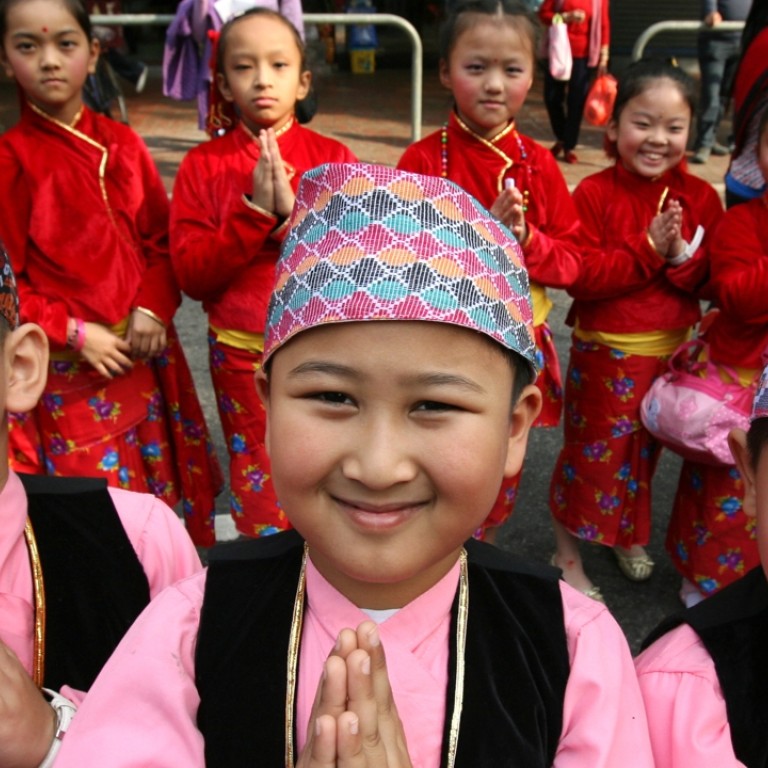
Hong Kong ethnic minorities fall through the cracks
Report shows some South Asians are living in a parallel, poorer and more deprived version of the city.
Race has become a basis for poverty in Hong Kong, as a landmark report shows that some South Asians live in a parallel, poorer and more deprived version of the city.
The first set of poverty statistics relating to the city’s ethnic minorities has lifted the veil on their plight, revealing that South Asians’ particular problems are linked to a lack of access to support and services.
Experts blamed racial insensitivity – both in policy-making and public education – and criticised the government’s non-committal attitude towards human rights and equality. They said ethnic minority groups had been pushed to the periphery of mainstream society as a result.
READ MORE: Hong Kong Pakistani father works all hours to benefit his next generation
With a per capita GDP of HK$310,113, Hong Kong is one of Asia’s richest economies. However, it is also one of the most unequal places in the developed world. Hong Kong’s Gini coefficient – a globally-recognised inequality scale in which ‘zero’ is complete equality and ‘one’ is complete inequality – is 0.537.
In 2014, about 15 per cent of the city’s population remained poor even after counting policy interventions such as welfare hand-outs. That meant one million people were living below the poverty line, which is set at half the median monthly household income.
But in the ethnic minority-centred poverty report released on December 31 last year, 22 per cent of the city’s 61,400 South Asians lived in poverty even after policy intervention.
Things were worse for South Asian families with children – 73 per cent of Pakistani families lived in poverty, comprising the most hard-up group.
The report highlighted that these impoverished families had problems accessing public services they needed due to language issues.

More than 85 per cent had not used, or had experienced difficulties using, government services due to language barriers. A similar number also had never used support services specifically for ethnic minorities, with more than half indicating this was because they did not know such services existed.
The statistics shed some light on how Hong Kong’s South Asian population, some of whom were now third-generation residents of the city, were continuing to live in poverty.
The problem persisted due to government attitude, according to Stephen Fisher, chair of Unison, a non-governmental organisation advocating for ethnic minority interests.
“To do the right thing, there needs to be a passion for civil and human rights,” said Fisher, who was formerly director of Social Welfare before retiring in 2009.
“The government may be trying to do the proper thing, but lacks passion because of their lack of belief in human rights and equal opportunity.”
The government also depicted poverty as a “work issue”, said Chinese University assistant professor Raees Baig, who warned that such an attitude would yield narrow policies.
READ MORE: Advisory committee chaired by top official needed to address issues facing ethnic minorities in Hong Kong, think tank says
“The government shifted poverty from a social issue into a labour problem … which is narrow and will translate into policies not holistic enough to deal with the issue,” Baig said.
Recent years had seen more vocal advocacy for ethnic minorities’ education rights and access to information. In 2013, the government set up a “Chinese as a second language learning framework” to help local, non-Chinese-speaking students learn the language. But the programme drew criticism for failing to include teaching materials or support for schools.
Chua Hoi-wai, chief executive of the Hong Kong Council of Social Services, said the framework would need time to mature, but after being operational for more than a year teachers stated that it needed more support.
“We need to think about how to strengthen support in order to really see it benefit the non-Chinese speaking students,” he said.
The government this year was to roll out Low Income Family Assistance, which would give families with one working person a monetary supplement, as well as an additional supplement for each child they had.
The Low Income Family Assistance policy was regarded as beneficial for many ethnic minority families who fell into the category. But Fisher said more work needed to be done in education, especially in Chinese-language education in order to curb intergenerational poverty.
Baig said better education and job opportunities for ethnic minorities were important, yet they did not address basic issues of discrimination and exclusion.
“Ultimately, it’s not just the lack of skills that keep them from being hired,” she said. “It’s also about discrimination.”
Baig criticised the government for painting all poverty issues as labour issues.
“You see the shift in government rhetoric. Because of poverty, the government is pushing to expand the labour force,” she said, adding that people were merely being pushed over the poverty line “into the working-poor category”.
“It’s obvious in the most recent policy address there is nothing on the social aspect of integration and anti-discrimination” Baig continued.
“There is no racial sensitivity in government policies.”
The Constitutional and Mainland Affairs Bureau – the government arm responsible for human rights and equality – declined to answer the Post’s inquiries on the administration’s stance and direction on anti-discrimination and diversity. Instead, it referred to other bureaus “responsible for their own relevant policies”.
Fisher asserted that Hong Kong society had yet to reach a point where equal respect and concern for all ethnic groups were seen as important.
He said the report should have excluded expatriates and the Japanese, Korean and Caucasian communities as they did not qualify as “ethnic minority” because the term inherently connoted an oppressed group.
But he conceded the report had provided much-needed statistics on ethnic minorities’ plight in the city.
Fisher doubted whether there was much incentive to truly help ethnic minorities in Hong Kong.
“It’s a matter of priority and public opinion, which is why education [regarding human rights and diversity] is so important,” he said. “There isn’t much public concern on the topic.”
Fisher said accusations that ethnic minorities “should not have so many kids if they can’t afford it” were unfair.
“You say they chose to have more? It’s a funny word, the word ‘choose’,” said Fisher. “The number of children a woman has is not dependent on their race.” He said the decision had more to do with economic development.
Having children was a form of insurance for those living in poorer societies with less social support, Fisher said, offering families more security in old age. And because the South Asian community was marginalised and relied on its limited internal networks to survive, having more children was deemed favourable.
South Asians in the city lived in developing world circumstances despite living in a developed society, he added.
“For the ethnic minority community here, it’s not a liability to have children but an asset,” he said. “If the ethnic minorities have equal opportunities, their birth rate will decline.”
